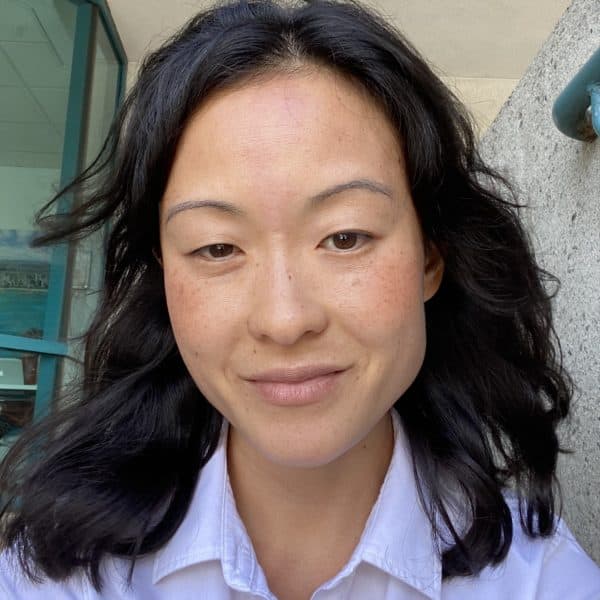Advertisement
Harvard students prop up tents to protest war in Gaza and suspension of campus group
Resume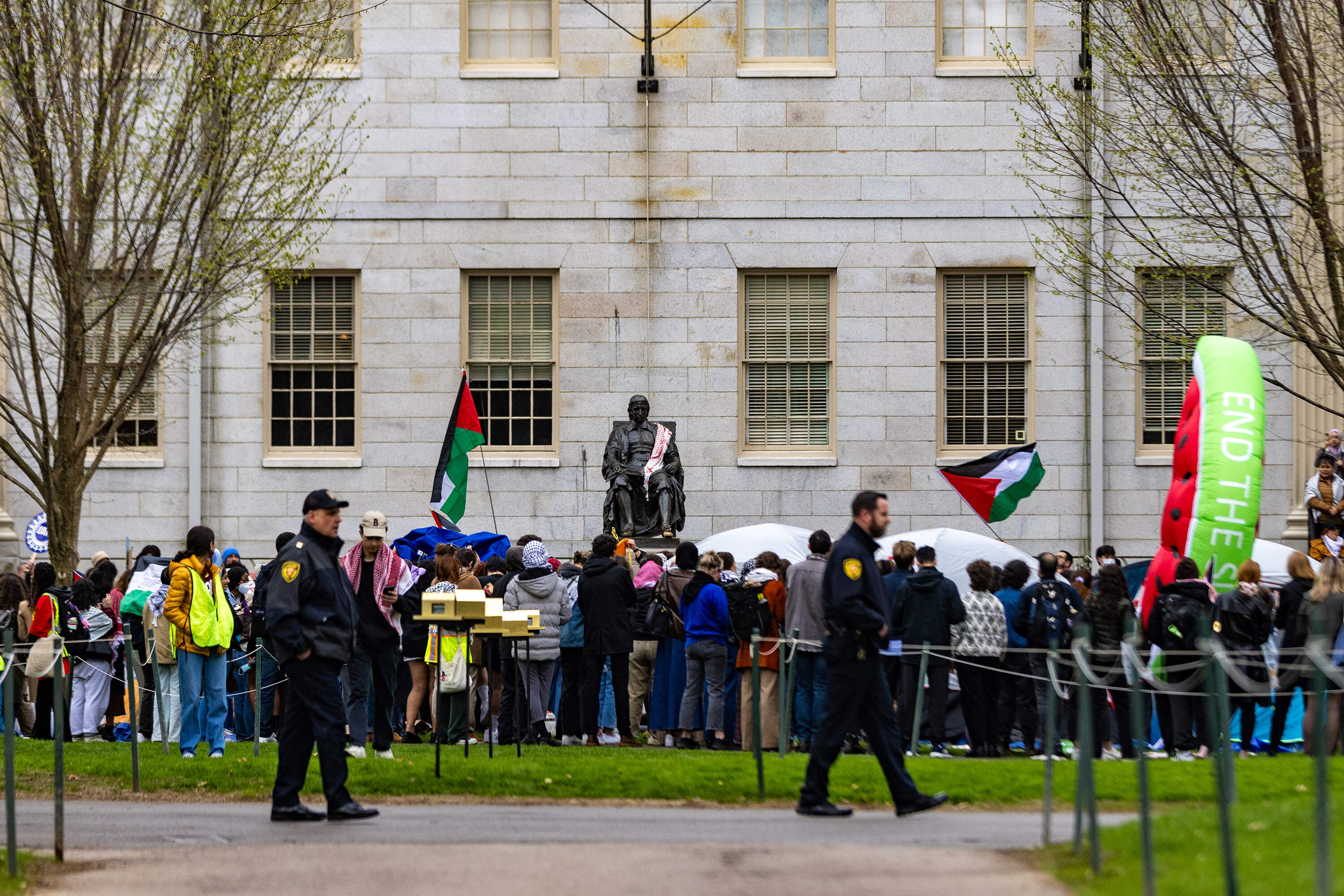
Hundreds of college students crowded Harvard Yard on Wednesday to protest the university's suspension of a pro-Palestinian student group, springing up a small tent encampment in solidarity with other student-led demonstrations across the U.S. against the war in Gaza.
The campus green had been closed off to the public since Sunday in apparent anticipation of protests. As more students filtered into the Cambridge campus, protesters put up about a dozen tents in front of the statute of John Harvard. Campus police, stationed across Harvard Yard, did not intervene.
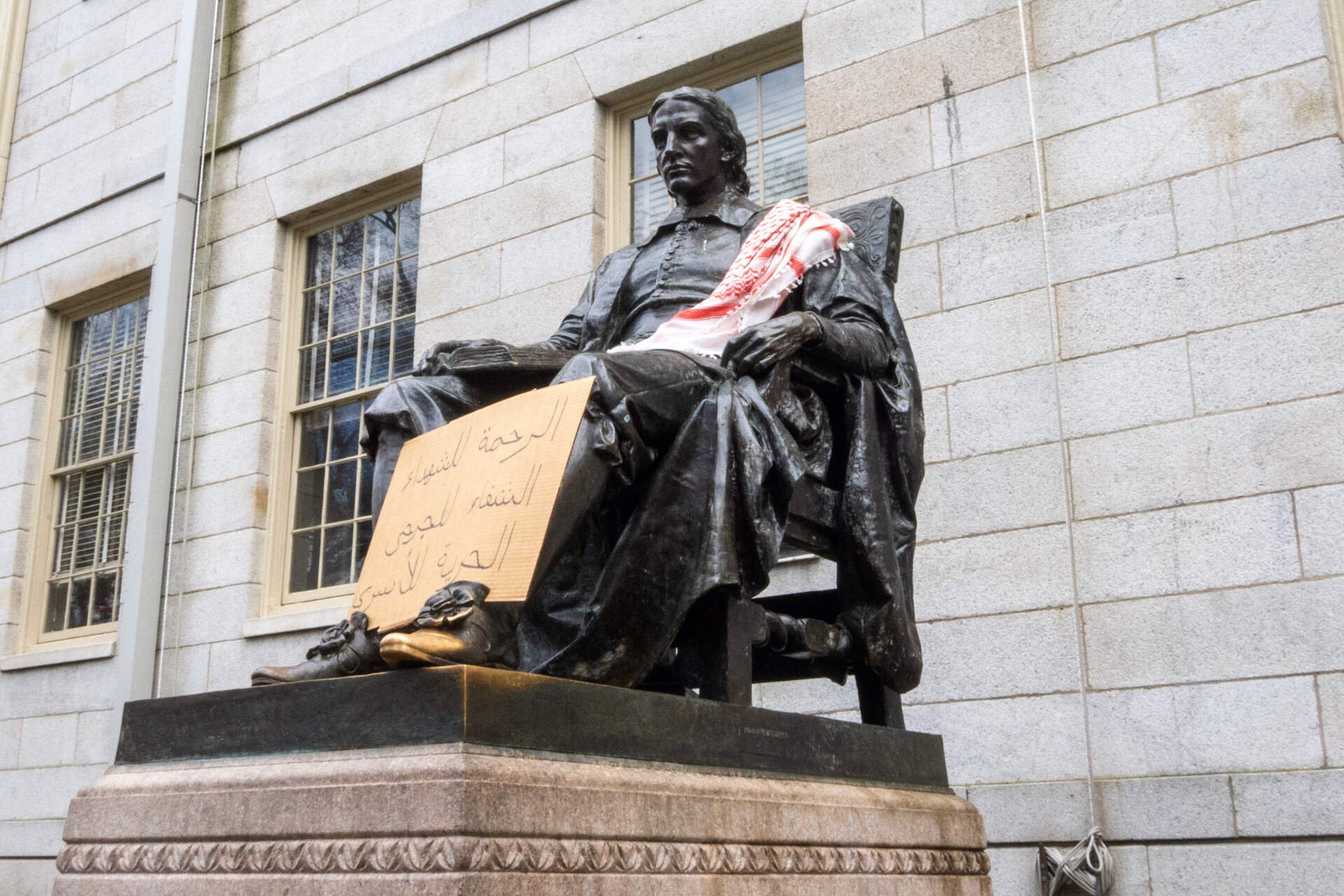
The protesters rallied against the university’s decision Monday to suspend the Palestine Solidarity Committee for the rest of the spring term, which ends Wednesday. In a statement Monday, a university spokesman said the measure was taken against the group over an alleged policy violation, but did not clarify which policy.
According to the Harvard Crimson, the university accuses the Palestine Solidarity Committee of violating protest guidelines during a campus demonstration last Friday in support of Columbia University activists.
Dozens of students at Columbia were arrested and suspended in recent days after standing up an encampment on the school's lawn; the university pushed classes online to try to simmer growing tensions on campus.
“We saw our brave comrades at Columbia [University] really show us that it’s strength in numbers, that our movement is gaining momentum and that college students across the country are answering the call,” said Prince Williams, a Harvard junior.
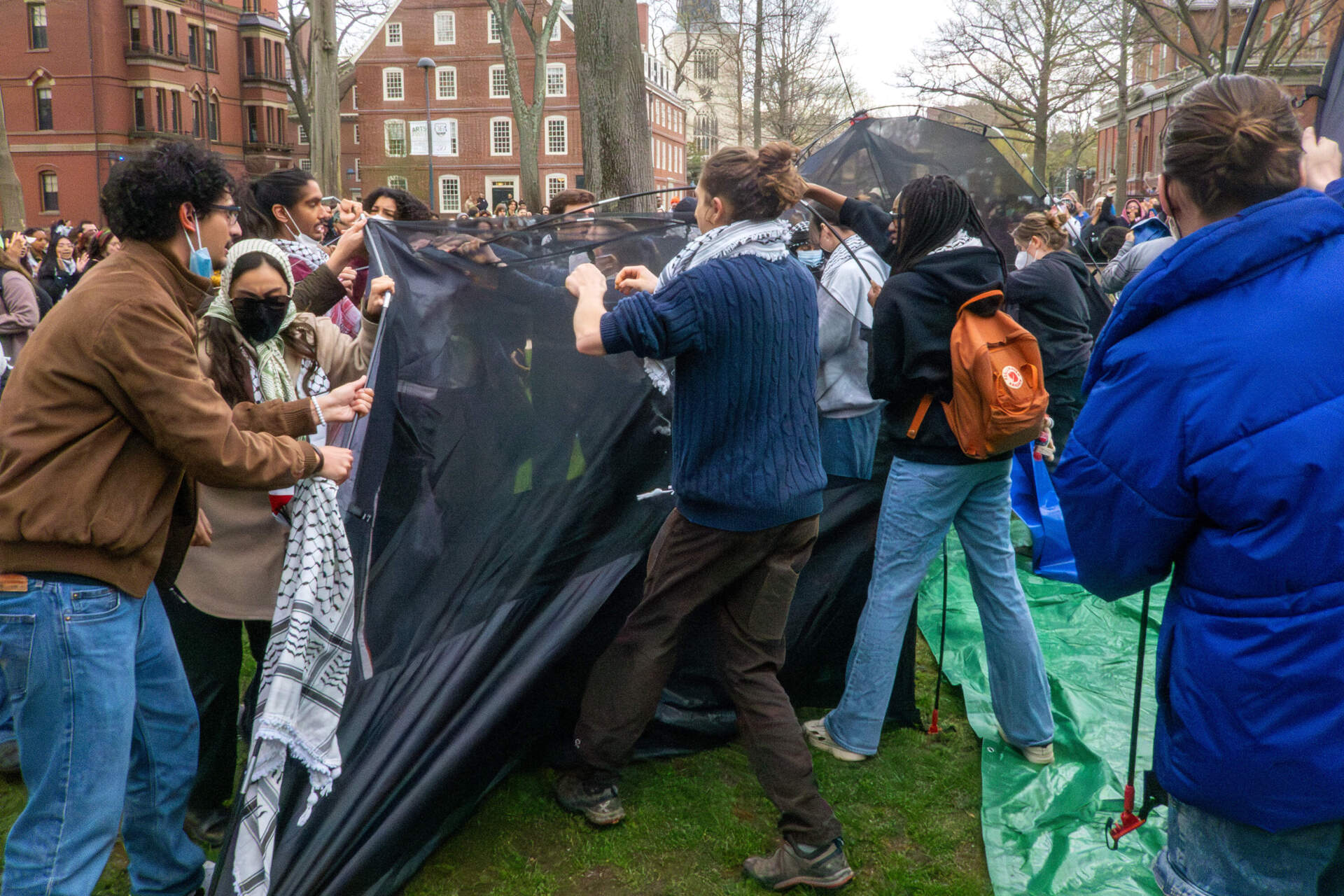
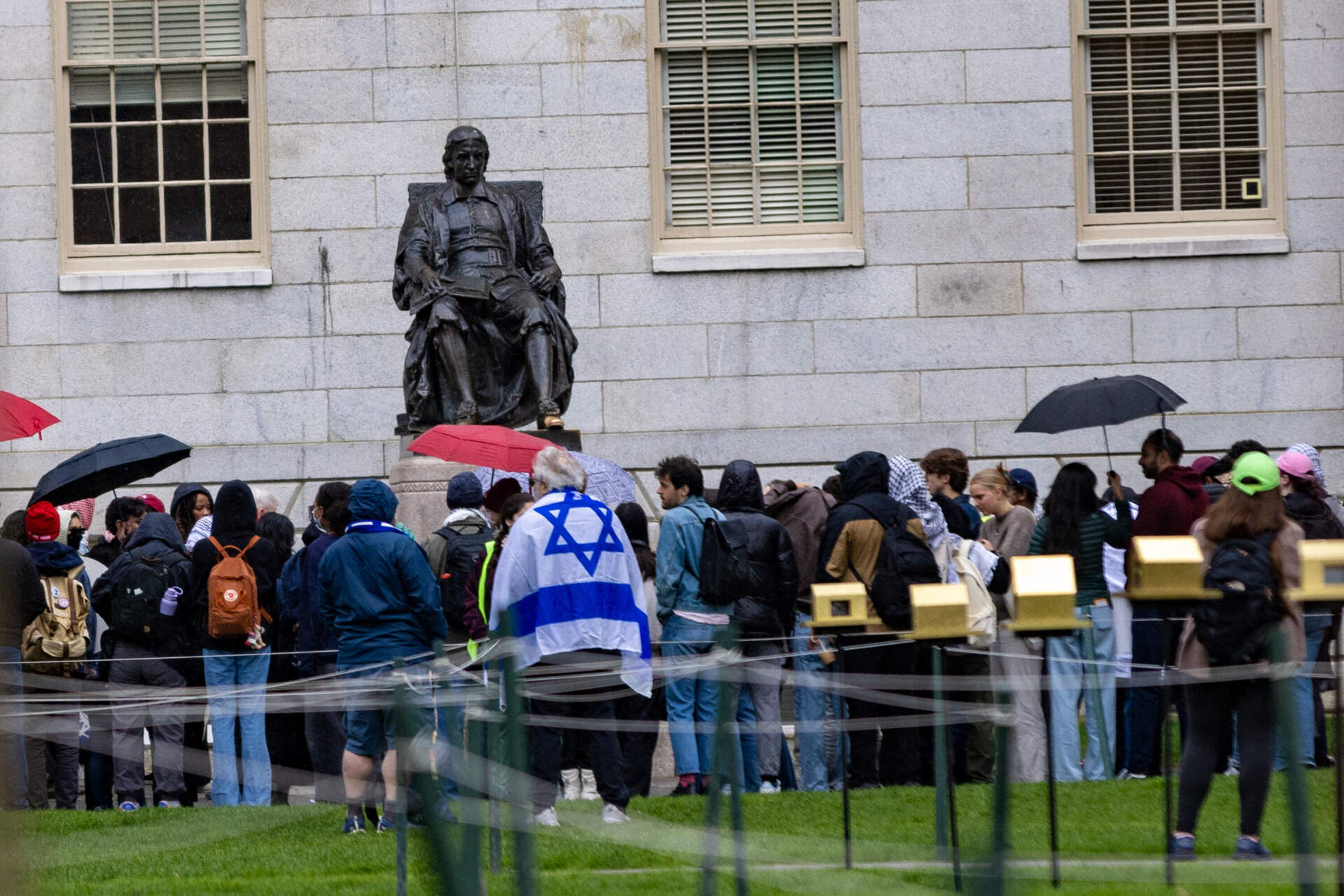
Some Harvard faculty members, including Vijay Iyer, a professor of the arts, joined the protest to support the group’s broader demands: disclosure of Harvard’s financial ties to Israel, a severing of those ties and non-punishment of student protesters.
Iyer addressed the crowd, highlighting how the day's actions were part of a broader nonviolent student movement against what he described as “genocidal violence” in Gaza.
The events at Harvard unfolded as similar activism across campuses in Greater Boston and the broader U.S. — from Tufts and Emerson, to Columbia, Yale, the University of Michigan and UC Berkeley — drew national attention and comparisons to Vietnam-era student protest movements. The actions largely called for a ceasefire in Gaza and for university officials to disclose and sever financial ties to Israel.
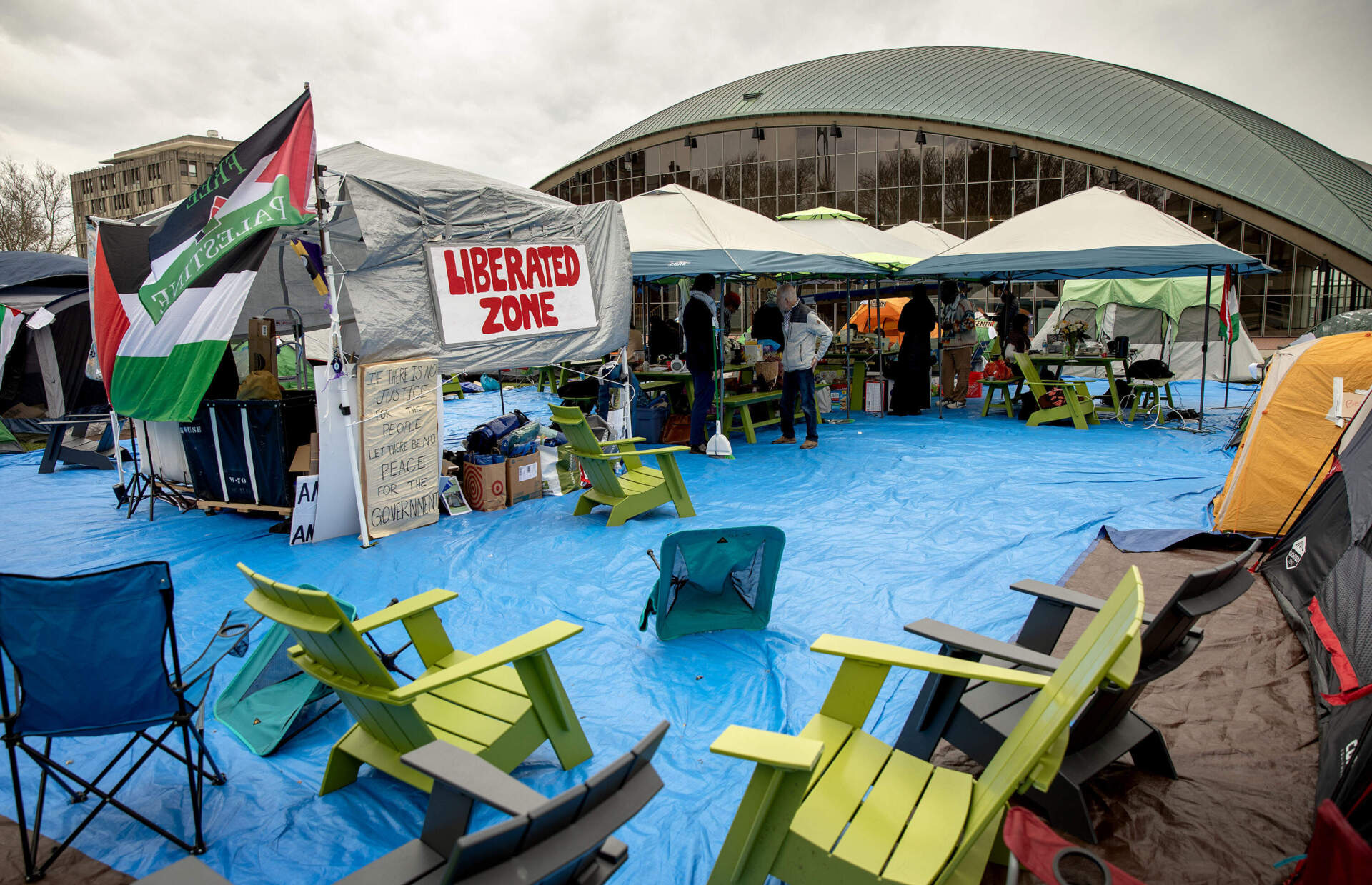
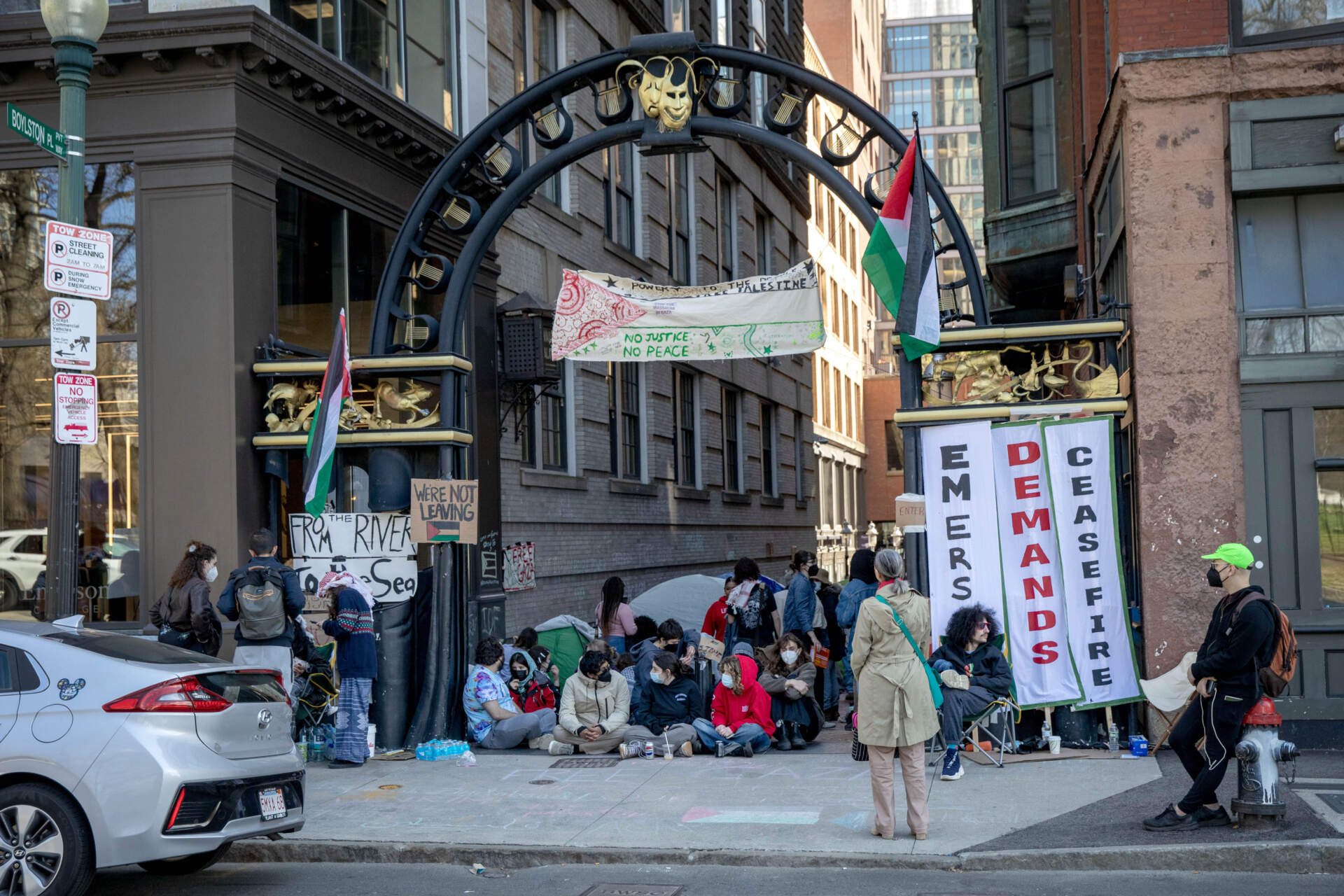
As NPR reported, while some Jewish students have joined many of the protests, others said they were feeling unsafe. The report cited concerns about antisemitic rhetoric and harassment on several campuses. Student leaders at Harvard Hillel did not immediately respond to requests for comment about the campus demonstrations.
In a statement Monday, leaders of Harvard's Palestine Solidarity Committee said the group had been “disproportionately targeted by the administration on the grounds of technicalities that we tried to observe vigilantly."
“Harvard can suspend our organization, but it cannot suspend our movement,” the statement added.
On Wednesday, the ACLU of Massachusetts sent Harvard’s lawyers a letter requesting the school reconsider the suspension and expressing concerns with how the probation unfolded.
“While the American Civil Liberties Union of Massachusetts takes no position on the conflict in Israel and Palestine, we are committed to ensuring freedom of expression and association, including on college and university campuses in Massachusetts,” the letter said.
Harvard did not immediately return requests for comment about the ACLU's letter.
Near downtown Boston Wednesday afternoon, about 100 Emerson College students rallied in an alley where students had camped out in protest earlier in the week.
Organizers at the Boylston Place gathering reupped their calls for a ceasefire and an end to any university ties to Israel.
Dylan Young, a junior and one of the group leaders, said administrators had threatened to tear down the encampment. But, he said, the group was undeterred, saying "this demonstration is much more than our tents."
At MIT's campus early Wednesday, about a dozen students continued for a third day an encampment of roughly 15 tents on Kresge Lawn. The scene was largely peaceful. Security had tightened since Sunday evening, with media access restricted on certain parts of campus.
Graduate student Prahlad Iyengar, who is part of the group Coalition for Palestine, which helped organize the encampment, said participants want MIT administration to call for a ceasefire and divest its financial interests and research projects from Israel.
“We need to take action and take a moral stance,” Iyengar said. “We will be here until [they’re] able to address our demands,” he said of administrators. “Our demands have been consistent, and we’re just asking to have an actual discussion.”
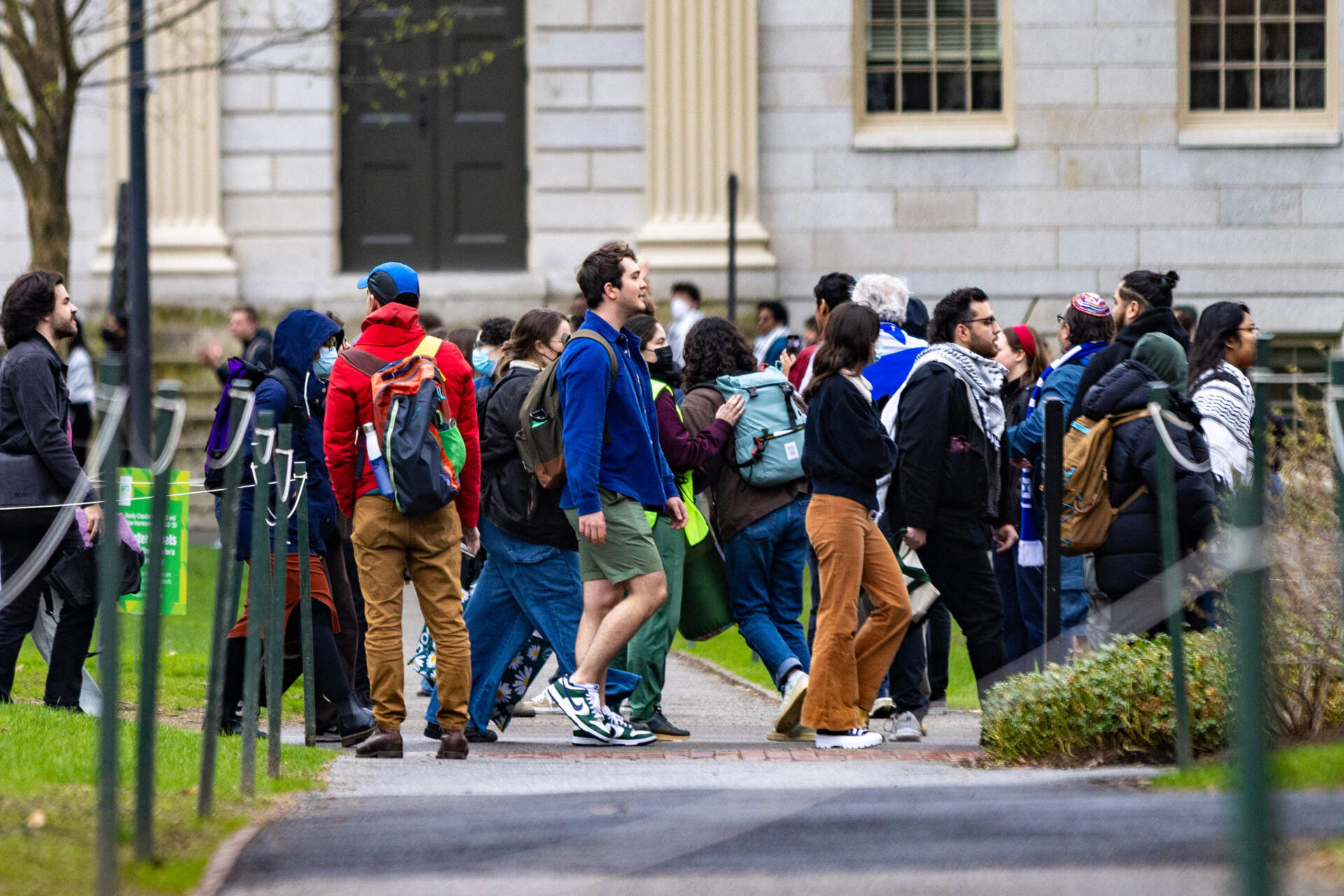
Meanwhile, supporters of Israel on campus, including the MIT Israel Alliance, expressed concerns about the protests. The group's president, Talia Khan, said it had asked university leaders to clear the encampment, boost security on campus and allow students to attend classes online if "they feel unsafe."
In a statement, MIT spokeswoman Kimberly Allen said the student demonstration on the lawn “has the full attention of leadership,” and that they’ve been “meeting and talking with students, faculty, and staff on an ongoing basis.”
In a separate statement, Allen said faculty and researchers regularly conduct research with international colleagues, including those in Israel. "MIT strongly supports the principles of academic freedom that enable our faculty to engage with a wide array of partners in the pursuit of knowledge," she said.
Meanwhile, at the University of Massachusetts-Amherst, the U.S. Department of Education’s Office for Civil Rights last week opened an investigation into a complaint alleging a hostile anti-Palestinian environment. On Wednesday, Palestine Legal, a legal advisory group, in a statement said the complaint was filed "on behalf of a group of UMass students, several of whom have been the target of extreme anti-Palestinian and anti-Arab harassment by fellow UMass students on campus and online."
UMass did not respond to requests for comment. Students have staged anti-war protests on the Amherst campus at various times since last October.
This article was originally published on April 24, 2024.
This segment aired on April 25, 2024.
